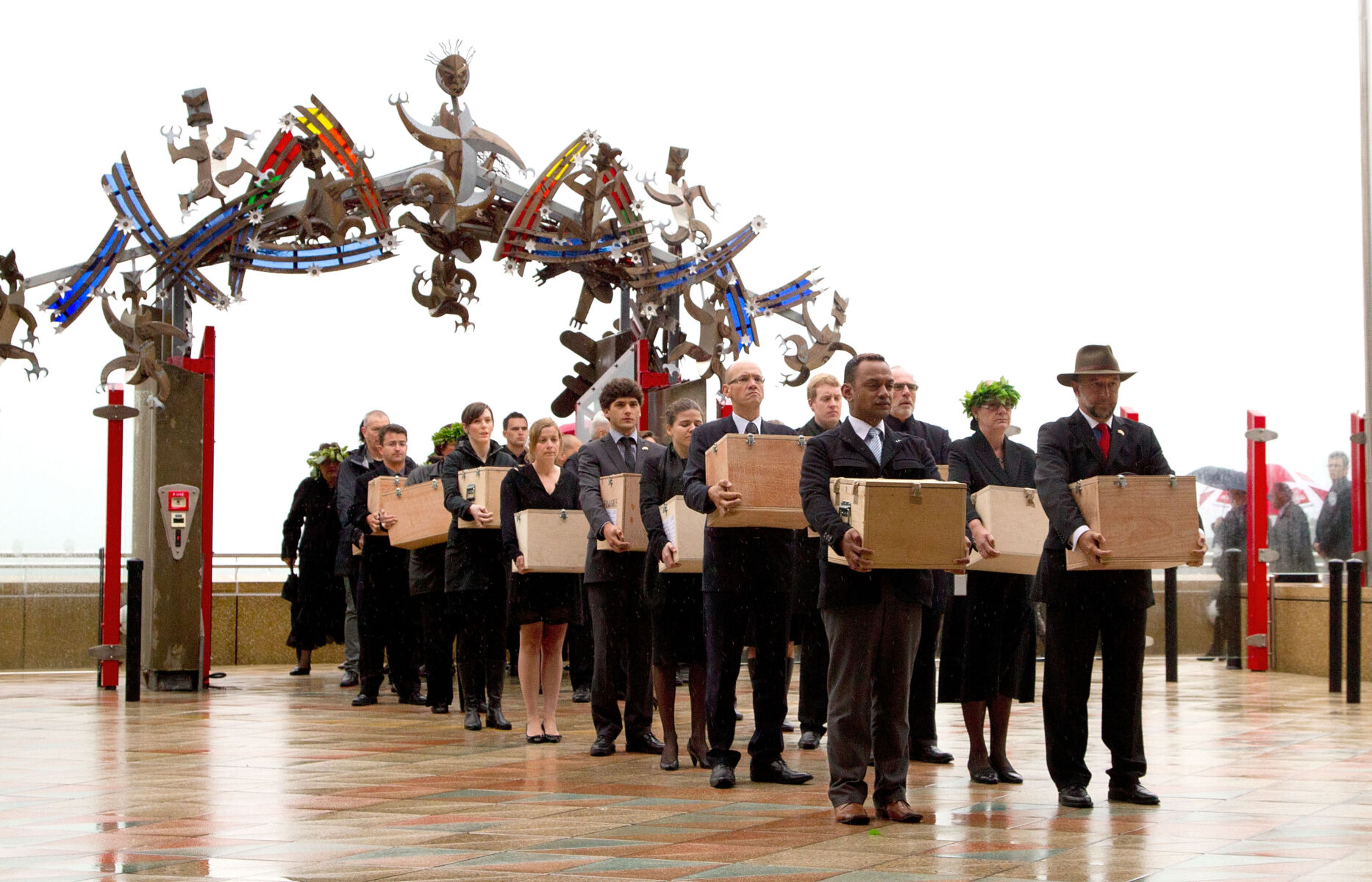Germany returns ancestral remains, artefacts to New Zealand in heartfelt gesture

In a poignant gesture, Germany has returned the ancestral remains of 95 Indigenous New Zealanders, along with artefacts and cultural treasures, to their homeland. The remains of the Maori and Moriori individuals, including six mummified tattooed heads known as toi moko, were received at Te Papa, New Zealand’s national museum, in a private ceremony.
Craig Hawke, New Zealand’s Ambassador to Germany, highlighted the significance of the repatriation and the “mature and close relationship” between Berlin and Wellington. He emphasised the depth of their connection, which transcends traditional diplomacy and includes culture, science, and knowledge exchange.
Te Herekiekie Haerehuka Herewini, the head of repatriation at Te Papa museum, expressed gratitude for the “significant respect and understanding” demonstrated by the German institutions involved. He said, “As we celebrate 70 years of diplomatic relations between Aotearoa New Zealand and Germany, these repatriations demonstrate the mature and close relationship we share.”
Since 2003, Te Papa has overseen the repatriation of over 600 Maori and Moriori ancestral remains from institutions based abroad, including those in Germany, Sweden, the United Kingdom, and the United States. In 2012, France’s Quai Branly Museum in Paris returned 20 toi moko to New Zealand after a four-year political struggle.
The remains and artefacts repatriated in this latest gesture were returned by several German institutions, including the Grassi Museum, Leipzig, the Reiss Engelhorn Museum, Mannheim, Linden Museum, The Stuttgart State Museum of Natural History, the Georg August University in Gottingen, the Roemer und Pelizaeus Museum, Hildesheim, and Museum Wiesbaden.
This act of repatriation follows Germany’s return of 20 historic bronze sculptures to Nigeria in December, as part of the country’s efforts to address its “dark colonial past,” according to German Foreign Minister Annalena Baerbock. The Benin bronzes were among thousands looted from the royal palace of the Kingdom of Benin, now part of southern Nigeria, by British troops during the colonial era. Some of the treasures also ended up in the custody of other foreign governments, including Germany.
Latest Thailand News
Follow The Thaiger on Google News:


























